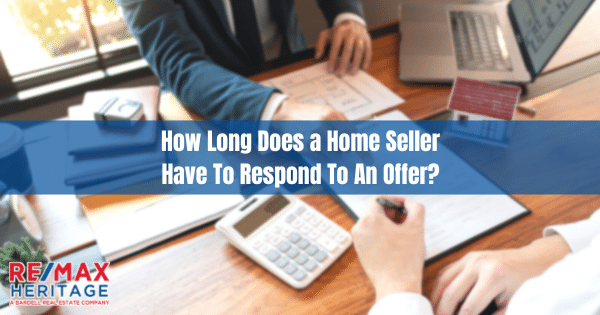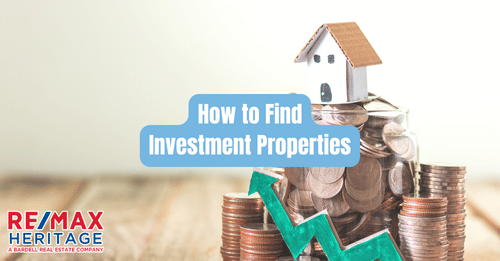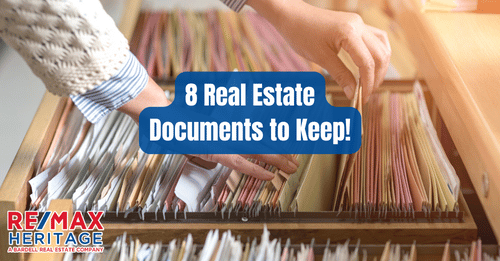
How Long Does a Home Seller Have To Respond To An Offer?
How Long Does a Home Seller Have To Respond To An Offer?

How Long Does a Home Seller Have To Respond To An Offer?
When you make an offer on a house, you might be wondering how long you can wait until you have to respond.
There’s nothing worse than sitting around waiting—especially when you’re waiting for someone to respond to your offer on the biggest financial decision of your life. Yeesh, it’s excruciating.
Unfortunately, waiting comes with the territory when you’re buying a house. But how long you have to wait is the bigger question. While there’s no official rule on how long a seller can take to get back to you, there is an industry standard that most real estate agents and sellers tend to follow.
Whether you just made an offer on a property or plan to in the near future, here’s everything you need to know.
Watch out! How long can a seller take to respond to an offer
In theory, sellers can take as long as they want before responding. But in practice? Most sellers (or their agents) will usually get back to you within a few days.
“As a courtesy, the Realtor® will notify the buyer’s agent when the seller responds regarding an offer,” says Benjamin Ross. As the seller’s agent, “we like to respond within 48 hours, but that also depends on when we get the seller’s response.”
Some agents have even stricter expectations when it comes to response time.
“Common courtesy dictates that a seller should respond within 24 hours or less,” says Karen Parnes. “This gives them the time to think about your offer, sleep on it, and respond.”
While 24 to 48 hours is the standard observed by many professionals in the industry, exceptions happen. Here are some of them.
When might it take longer for a home seller to respond
There are quite a few reasons why a seller might take longer than usual to respond to your offer. The first is if they received multiple offers.
“Typically, response time increases if there is more than one offer on the table,” says Ross. “Sellers may take their time to choose which offer is best for them.”
Another reason your offer might go unanswered is if it’s too low.
“If an offer is far from what a seller expected to receive, many times they won’t respond at all,” says Parnes.
Other times you might not hear back for a completely unrelated reason—such as the seller is out of town or on vacation.
Consider setting a time limit on your offer
If you’re concerned about how long a seller might take to respond to your offer, work with your agent to find out if you can set a contractual time limit on it. In some states these “offer time limits” are used by buyers and sellers to dictate how long the other party can take to respond.
“Offer time limits are defined in the contract in the state of Georgia,” says Katina Asbell, associate broker at Real Living Capital City Realty. “The ‘time limit of offer’ is the period of time the offer is active and open for response, and once it’s expired, the contract is void and a new offer must be presented.”
Whether or not your local legislature allows buyers to set time limits, Asbell cautions buyers to be strategic when using them.
“The time limit can be a critical part of defining a buyer’s success in negotiation,” she says. “If it’s too short, the seller may feel rushed or annoyed and give a harsh response. If it’s too long, then the buyer risks a multiple-offer scenario.”
Tips for a successful negotiation with home sellers
Ultimately, the process of getting an offer accepted is all about being a good negotiator—and for this you’ll want to work with an experienced real estate agent.
“The best success I have found in gauging appropriate and amiable timelines is a very open and honest conversation with the seller’s agent,” says Asbell. “Buyers haveone chance at a first impression and to set the stage for the remaining negotiation process, and timeline matters greatly in conveying this tone.”
Experts in Residential Real Estate in Orlando
If you are buying or selling real estate it’s quiet often the single most important financial decision you make. For the last 30 years we have helped clients buying and selling property in Orlando and the surrounding areas. Put simply, this means the knowledge and expertise accumulated over this time ensures our clients get the best representation possible.
Our experienced agents will help and guide you through the entire process providing valuable support every step of the way.
Ready to make a Move?
Bardell Real Estate are the experts in helping you with your selling, buying or renting needs near Orlando, Florida. Make your Disney area experience a forever memorable one. Call us now to speak to a real estate agent.





